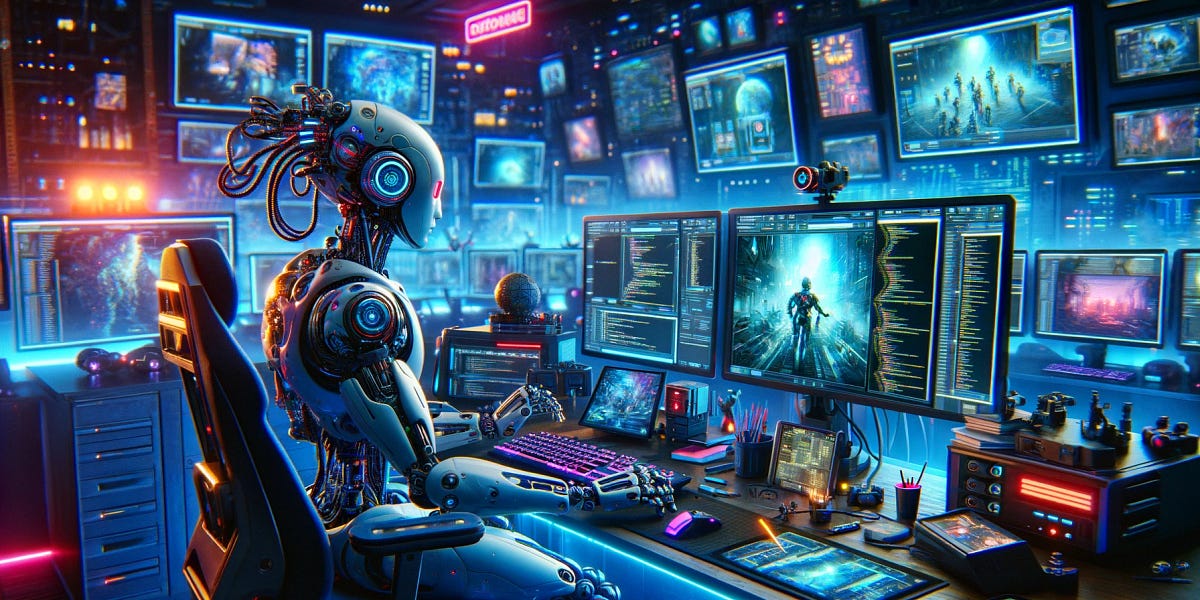In the world of video games, where imagination often knows no bounds, a new silent partner is rapidly taking center stage: Artificial Intelligence. Far from being a futuristic concept, AI is now an integral part of the creative process, especially within the hallowed halls of Japanese game development. A recent report pulls back the curtain, revealing an industry in the midst of a profound transformation, balancing the allure of efficiency with the intrinsic value of the human touch.
The Quiet Revolution: Japan`s Rapid AI Adoption
A comprehensive survey, spearheaded by the organization behind the venerable Tokyo Game Show, paints a clear picture: Japanese game developers are embracing AI at an unprecedented pace. The findings from the 2025 CESA Video Game Industry Report indicate that a striking 51% of developers in Japan are now integrating AI into their game production processes. This isn`t just theoretical interest; it`s active, hands-on application.
Conducted between June and July this year, the survey gathered insights from 54 prominent companies, including industry giants like Sega, Capcom, and Level-5. Their responses highlight a diverse range of AI applications. From crafting intricate visual assets and assisting with compelling storylines and text creation, to streamlining complex programming support, AI is proving its versatility. Perhaps most intriguingly, some developers are even leveraging AI to help forge the very foundations of their creations: bespoke in-house game engines. It appears the machines are not just helping build the house, but occasionally, the blueprints too.
A Global Echo with a Human Touch Mandate
This surge in Japan is not an isolated phenomenon; it mirrors a broader, global trend. Across continents, a significant majority of game developers worldwide are incorporating AI systems into their workflows. Yet, this rapid adoption isn`t without its caveats or, dare we say, its corporate disclaimers. Major players are quick to emphasize a cautious approach, aiming for augmentation rather than outright replacement.
Sony, for instance, has articulated its philosophy: AI should serve as a powerful ally to creativity, not its usurper. Similarly, Nintendo, a company renowned for its unique approach to innovation, offers a measured stance. Gaming legend Shigeru Miyamoto has expressed that Nintendo will not rush into AI, preferring a more deliberate pace. Outgoing Nintendo of America president Doug Bowser echoes this sentiment, acknowledging AI`s future role but firmly stressing the indispensable need for a `human touch` in development. One might observe a subtle irony here: the more fervently AI is embraced, the more vociferously the industry leaders assure us that human ingenuity remains paramount.
Even Activision, a powerhouse among American game publishers, utilizes AI tools. Yet, they too insist that every creation remains `human-created and touched,` particularly regarding the intricate and subjective creative aspects of their games. It`s a reassuring chorus, perhaps, to an audience increasingly attuned to the march of automation.
The Unsettled Waters: Worker Concerns and the Creative Soul
Beneath the surface of technological advancement, a significant undercurrent of concern persists, especially among creative professionals. The past year has seen the industry grapple with the potential impact of AI on livelihoods. Video game voice actors, for example, took a stand to secure protections against AI, culminating in SAG-AFTRA`s year-long strike that concluded in June.
Despite the new agreement, the anxiety among voiceover performers remains palpable. The specter of being replaced by AI voice duplicates in both animation and video game production is a very real fear, highlighting a central tension: can AI truly replicate the nuanced emotion, character, and soul that human artists bring to their craft? Or will it merely offer a serviceable, albeit soulless, facsimile?
Navigating the Future: A Symphony of Silicon and Spirit
The narrative of AI in Japanese game development, and indeed globally, is complex and still unfolding. It`s a story of accelerating progress, promising efficiencies, and unlocking new creative frontiers previously unimaginable. Yet, it`s equally a story of caution, ethical deliberation, and the persistent, vital importance of human ingenuity and empathy. As AI tools become more sophisticated, the challenge for developers will be to harness their power without sacrificing the unique spark that makes video games such a compelling and deeply human form of art. The future of gaming might just be a collaborative masterpiece, where silicon and spirit learn to compose together.

